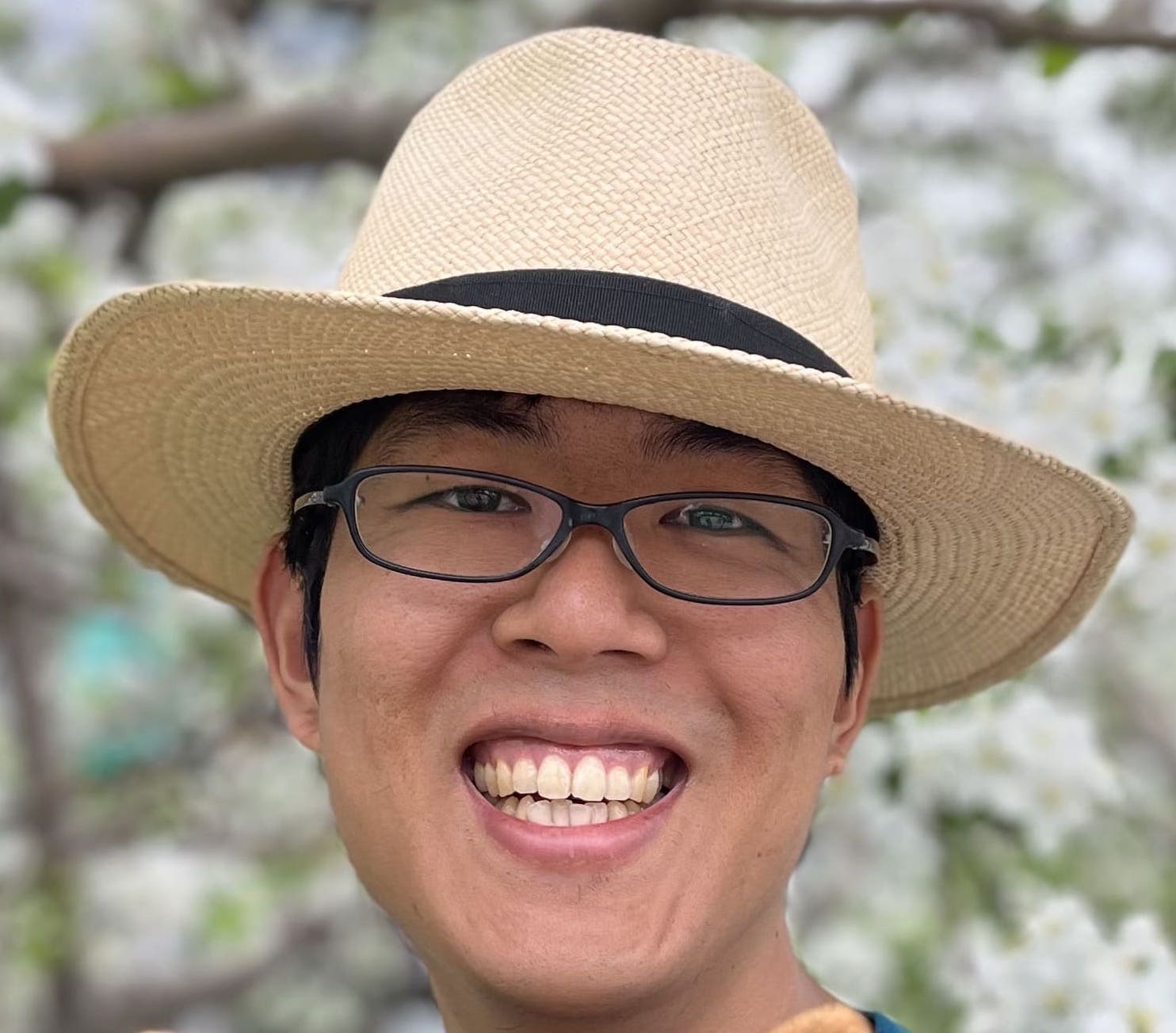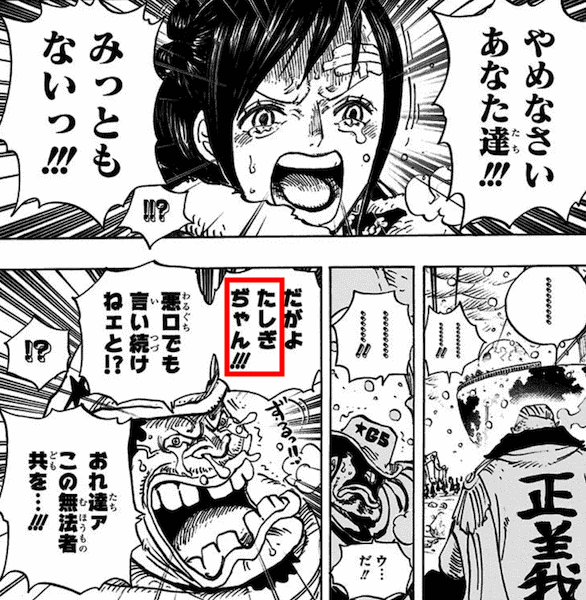
Harada-sensei! Why do we say にほんじん instead of にほんぢん while
we say はなぢ instead of はなじ?
That's a great question!
Japanese has another case like that between ず and づ!
There are some rules which you can use to decide which hiragana to use.
I will introduce those!!


はい、お願いします!
じ vs. ぢ: When do we use which?
In this section, I will explain when じ/ず should be used instead of ぢ/づ in Tokyo dialects (in some dialects in Japanese such as Kochi, Miyazaki, and Kagoshima dialects, those four letters are pronounced differently). There are same rules with respect to the use of じ vs. ぢ and ず vs. づ、and I explain those in turn.
The following box shows when じ/ぢ should be used, where 'ZI' refers to a letter pronounced じ or ぢ (e.g., いちZI 'one o'clock'), whose right form you are curious about. When you examine the right form of ZI, you can check each of the following four rules IN THE ORDER; i.e., check Rule 1. If the statement of the if-clause is irrelevant, check Rule 2. If the statement of the if-clause is irrelevant, check Rule 3. If the statement of the if-clause is irrelevant, check Rule 4.
Rules: じ vs. ぢ
- If the kanji of ZI has じ/ぢ has its 'basic sound', use じ/ぢ (e.g., いちじ, じめん).
- If し/ち immediately precedes the ZI , (and there is no word boundary between the two sounds,) use じ/ぢ (e.g., しじみ, ちぢむ).
- If ZI is the voiced counterpart of し/ち due to rendaku, use じ/ぢ (e.g., いろ+しろ→いろじろ, はな+ち→はなぢ).
- Use じ elsewhere.
As Rule 4 says, じ/ぢ is generally prioritized. Moreover, there are some exceptions for the above rules, as shown below. So it is safer to use じ/ぢ when in doubt. But the rules work for many words, so you could look at the details of the rules below.
Rule 1
The first rule you consider when examining the right form of a particular ZI is Rule 1. If you know that ZI has a kanji, think/check about its basic hiragana form; the hiragana form is the right form of ZI.
I know that it is very rare that you know the basic hiragana form when wondering about whether ZI is spelled じ or ぢ! But you will see below how important it is to keep this rule in mind!!
Rule 2
Secondly, let's consider Rule 2. If し immediately precedes the ZI , use じ as in しじみ. On the other hand, if ち immediately precedes the ZI , use ぢ as in ちぢむ.
Note that there are words like いちじ, もちじ, and いちじく where じ follows ち. While it is not clear whether all of such data have valid explanations, the data above have some explanations. First, いちじ and もちじ can be written with kanji as 一時 and 持地. The kanji 時 and 地 have じ as their basic hiragana form, so じ is used as Rule1 is prioritized over Rule 2. As for いちじく, there is a view that the name, いちじく, comes from 一熟(いちじゅく), as only one fruit ripens a day. Note that the kanji 熟 has じゅく as its basic hiragana form. So the じ of いちじく could be a trace of the word's etymological background.
Rule 2 involves "(and there is no word boundary between the two sounds)". This condition is in parenthesis as it does not seem necessary (although it is necessary in considering ずvs.づ, as shown below). But it is still useful to address the above words. For instance, when you are not sure whether 時 in 一時(いちじ)has じ as its basic hiragana form, you can still figure out that いちじ is correct rather than いちぢ. This is because there is a word boundary between いち and じ.
Rule 3
Rule 3 says that if ZI is the voiced counterpart of し/ち due to rendaku, use じ/ぢ. Suppose that there is a word あいうZIえお. If the meaning of the word consists of the meanings of the word あいう and the word しえお, then use じ for ZI (e.g., いろじろ = いろ+しろ). Likewise, if the meaning of the word あいうZIえお consists of the meanings of the word あいう and the word ちえお, then use じ for ZI (e.g., はなぢ = はな+ち).
Now, consider いちじるしい, which looks prima facie surprising because ち precedes じ; according to Rule 2, it seems that the right form is いちぢるしい. Here comes etymology again! There is a view that いちじるしい comes from いち+しるし, and the first し becomes じ due to renduku, just like いろじろ above. Isn't it interesting?!
Here's another interesting word: せかいじゅう(世界中). 中 has ちゅう as its basic hiragana form, so one may wonder why せかいぢゅう is the right form, where ぢ is derived from ち of ちゅう via rendaku. My answer to this question is that 中 has じゅう as its basic hiragana form, so せかいじゅう is the 'preferred' form (it seems that せかいぢゅう is not incorrect form, though it doesn't look great to me).
Lastly, consider also

Note: I've attached the above comic page including the target word (i.e., たしぎぢゃん) as One Piece is very popular among Japanese language leaners and I wanted to introduce how the relevant grammar point is used in real life. If there is any copyright issue with the picture, I will immediately delete it. Otherwise, thank you very much for your help and great comic!!
Rule 4
If the above three rules are irrelevant for the word you are investigating, then use じ instead of ぢ. Take おなZI 'same' as an example. ZI cannot be written with kanji, so Rule 1 is irrelevant here. ZI is not preceded by し or ち, so Rule 2 is irrelevant, either. Lastly, Rule 3 is irrelevant either, as rendaku should not have happened here; rendaku is possible only if a word consists of two words. In this way, none of the three rules are relevant here, and in such cases Rule 4 says we use じ.
As shown above, there are basic rules about the use of じ/ぢ, but there are some 'exceptions'. For instance, some proper names such as ブリヂストン (Bridgestone), 大人のラヂオ (a radio program), スタジオ ヂーニアス (fitness club) uses ヂ although ジ should be used according to the above rules. So you could use the above rules as a baseline, and memorize exceptions!
ず vs. づ: When do we use which?
For ずvs.づ, ず and づ behave in the same way as じ and ぢ, respectively, as summarized below. So I do not go into the details of each rule, but I briefly discuss two tricky data.
Rules: ず vs.づ
- If the kanji of ZU has ず/づ has its 'basic sound', use ず/づ (e.g., ずこう).
- If す/つ immediately precedes the ZU, and there is no word boundary between the two sounds, use ず/づ (e.g., すずめ, つづく).
- If ZU is the voiced counterpart of す/つ due to rendaku, use ず/づ (e.g., さば 'mackerel' +すし 'susi' →さばずし 'mackerel sushi', て 'hand' +つくり 'made'→てづくり 'hand-made'.
- Use ず elsewhere.
First, in relation to Rule2, consider みっつずつ (わたしはペンとかばんをみっつずつかう。'I'll buy three for each of pens and bags.'); we use ず instead of づ despite it being preceded by つ. Why is that? This is because according to Rule2 づ should not be used if there is a word boundary immediately before ZU, and this is the case in みっつずつ , which can be decomposed into みっつ 'three' and ずつ 'each'.
Next, consider いなずま(稲妻)’thunder' in relation to Rule3. As you can see from the kanji, いなずま consists of two words いね(rice) and つま'wife'. Since the latter word starts with つ, why don't we write いなづま? One potential answer to this question is that いなずま has a unique characteristics compared to さばずして, づくり that the meaning of the word has little to do with rice and wife (although there is some etymological story behind the use of kanji and づ, which most Japanese do not know and thus which is less likely to be the reason why we use づ). This hypothesis is compatible with the fact that we write other people's wife and new wife as ひとづま(人妻)and にいづま(新妻). The meaning of ひとづま consists of ひと '(other) person' and つま 'wife' and the meaning of にいづま consists of にい 'new' and つま 'wife'. However, if this hypothesis is right, how can we explain the use of ず in かたず(固唾)'saliva you get when you are nervous', which consists of かた 'hard' and つば 'saliva'? At first glance, the meaning of かたず has little to do with hard and saliva, but one can think of かたず as the saliva when you are nervous, in which your body is likely to be 'hardened' (i.e., you clam up). After all, orthography is not a natural thing, but an artificial thing made up by humans. So we may be just seeing irregular examples, do you see some pattern those 'irregularities'?
Lists of words with じ/ぢ and ず/づ in Genki I (third edition) and Tobira
I will introduce words with じ, ぢ, ず, or づ that are used in Genki I (3rd edition) and Tobira in turn.
| Words with じ (Genki I, 3rd edition) | Words with ぢ (Genki I, 3rd edition) |
| アジア | No words!! |
| いじわる(な)[意地悪(な)] | |
| いちじ [一時] | |
| エジプト | |
| おじいさん | |
| おじぞうさん | |
| おだいじに [お大事に] | |
| おなじ [同じ] | |
| おへんじ [お返事] | |
| おまんじゅう | |
| オレンジ | |
| かのじょ [彼女] | |
| かんじ [漢字] | |
| きんじょ [近所] | |
| さんふじんか [産婦人科] | |
| ジーンズ | |
| じかん [時間] | |
| じしょ [辞書] | |
| じぞう | |
| じてんしゃ [自転車] | |
| じはつ [次発] | |
| じびか [耳鼻科] | |
| じぶん [自分] | |
| じゃあ | |
| じゃがいも | |
| じゅう [十] | |
| ジャーナリスト | |
| じゆうせき [自由席] | |
| じゅぎょう [授業] | |
| じゅく [塾] | |
| しゅじゅつ [手術] | |
| ジュース | |
| じょうしゃけん [乗車券] | |
| じょうず [上手] | |
| 〜じん [人] | |
| じんじゃ [神社] | |
| せいじ [政治] | |
| そうじ | |
| だいじょうぶ [大丈夫] | |
| にんじん [人参] | |
| はじまる [始まる] | |
| はじめて [初めて] | |
| はじめまして [初めまして] | |
| はじめる [始める] | |
| びじゅつかん [美術館] | |
| へいじつ [平日] | |
| ページ | |
| ベージュ | |
| へんじ [返事] | |
| まじめ(な)[真面目(な)] | |
| まんじゅう | |
| みじかい [短い] | |
| ゆうめいじん [有名人] | |
| ようじ [用事] |
| Words with ず (Genki I, 3rd edition) | Words with づ (Genki I, 3rd edition) |
| しずかな [静かな] | No words!! |
| すずしい [涼しい] | |
| ふたりずつ [二人ずつ] | |
| まず | |
| みず [水] | |
| みずいろ [水色] | |
| みずうみ [湖] | |
| むずかしい [難しい] |
| Words with じ (Tobira) | Words with ぢ (Tobira) |
| あいじょう [愛情] | ちぢめる [縮める] |
| あくじゅんかん [悪循環] | |
| あじわう [味わう] | |
| いえじゅう [家中] | |
| いじょう [以上] | |
| えんじる [演じる] | |
| おおさかじょう [大阪城] | |
| かいじょう [会場] | |
| かじ [火事] | |
| かんじ [感じ] | |
| かんじゃ [患者] | |
| ぎじゅつ [技術] | |
| ぎょうじ [行事] | |
| きょうじゅ [教授] | |
| きんじょ [近所] | |
| げいじゅつ [芸術] | |
| げんじょう [現状] | |
| こうじょう [工場] | |
| じさつ [自殺] | |
| じさつ [支持] | |
| じじつ [事実] | |
| じじょ [侍女] | |
| じしん [自信] | |
| じだい [時代] | |
| じっけん [実験] | |
| じっこう [実行] | |
| じっさいに [実際に] | |
| じつは [実は] | |
| じどうの [自動の] | |
| じゃがいも | |
| じゅうぶん [十分] | |
| じゅうみん [住民] | |
| じゅけん [受験] | |
| じゅけん [受験生] | |
| しゅじゅつ [手術] | |
| じゅしょう [受賞] | |
| しゅじん [主人] | |
| しゅじんこう [主人公] | |
| じゅみょう [寿命] | |
| じょうきょう [上京] | |
| しょうけい [情景] | |
| じょうけん [条件] | |
| じょうしき [常識] | |
| しょうじょ [少女] | |
| じょうたい [状態] | |
| じょうたつ [上達] | |
| じょうぶ [丈夫な] | |
| じょうほう [情報] | |
| じんこう [人口] | |
| しんじゃ [信者] | |
| じんじゃ [神社] | |
| じんしゅ [人種] | |
| しんじょう [信条] | |
| じんせい [人生] | |
| じんぶつ [人物] | |
| じんるい [人類] | |
| すうじ [数字] | |
| せいじ [政治] | |
| せいじつな [誠実な] | |
| そうりだいじん [総理大臣] | |
| だいじな [大事な] | |
| だいじょうぶな [大丈夫な] | |
| だいにじせかいたいせん [第二次世界大戦] | |
| だんじょ [男女] | |
| たんじょう [誕生] | |
| ちじ [知事] | |
| ちょうじんてきな [超人的な] | |
| つうじる [通じる] | |
| デジカメ | |
| てんじょう [天井] | |
| でんじレンジ [電子レンジ] | |
| とうじ [当時] | |
| とうじつ [当日] | |
| どうじに [同時に] | |
| とうじょう [登場] | |
| どうじょう [道場] | |
| とうなんアジア [東南アジア] | |
| どくじの [独自の] | |
| とじる [閉じる] | |
| ナマズ | |
| にちじょう [日常] | |
| ねんちゅうぎょうじ [年中行事] | |
| はいじん [俳人] | |
| はくじん [白人] | |
| はじまり [始まり] | |
| はじめ [初め] | |
| はじめて [初めて] | |
| ひじょうな [非常な] | |
| びじん [美人] | |
| ふじさん [富士山] | |
| へんじ [返事] | |
| まじめな [真面目な] | |
| むじんの [無人の] | |
| めいじいしん [明治維新] | |
| もじ [文字] | |
| もみじ [紅葉] | |
| ゆうじん [友人] |
| Words with ず (Tobira) | Words with づ (Tobira) |
| いたずらをする | あとにつづく [後に続く] |
| うなずく [頷く] | がまんづよい [我慢強い] |
| おかず | ちかづく [近づく] |
| おとずれる [訪れる] | てづくり [手作り] |
| かいてんずし [回転寿司] | にんたいづよい [忍耐強い] |
| かず [数] | みぢかな [身近な] |
| ガッツポーズ | やまずみ [山積み] |
| かならず [必ず] | |
| かわず(カエル) | |
| キャラクターグッズ | |
| くれなずむゆうぐれ [暮れなずむ夕暮れ] | |
| ず [図] | |
| ずいぶん [随分] | |
| ずっと | |
| はずかしい [恥ずかしい] | |
| はずかしがりや [恥ずかしがりや] | |
| まずしい [貧しい] | |
| まるぼうず [丸坊主] | |
| ゆずる [譲る] |
